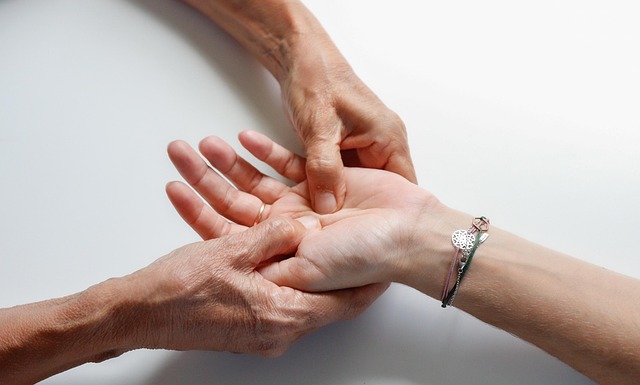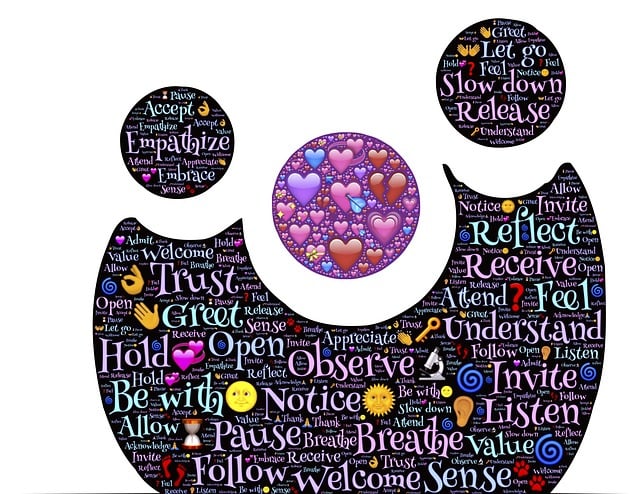Relationship therapy is a powerful tool for repairing and strengthening connections between individuals, both personally and professionally. By creating safe spaces for open communication, therapists help clients explore root causes of trust issues, identify patterns, challenge negative beliefs, and rebuild healthier perceptions and behaviors. Key techniques include active listening, empathy, setting boundaries, forgiveness, and fostering mutual respect and understanding. This collaborative process not only repairs damaged trust but also strengthens the emotional bond essential for healthy relationships, equipping individuals to face future challenges together.
Trust rebuilding sessions are essential for couples or individuals seeking to recover from betrayal and strengthen their bonds. This comprehensive guide explores the various aspects of trust restoration, from identifying underlying trust issues to implementing effective communication strategies and setting healthy boundaries. Utilizing relationship therapy, creating safe spaces, and fostering forgiveness, these steps facilitate healing and reconnection. Discover how to maintain trust over time through long-lasting relationship strategies, ensuring a stronger, more resilient connection.
Understanding Trust Issues: Identifying the Root Causes

Trust issues can significantly strain relationships, whether personal or professional. Understanding where these issues stem from is a crucial first step in rebuilding trust. In many cases, deep-seated trust problems originate from past experiences, such as betrayal, abandonment, or invalidation. These early life events can shape one’s emotional responses and expectations in current relationships.
In relationship therapy, identifying the root causes of trust issues involves open dialogue and exploration. Therapists help individuals examine their historical experiences, recognize patterns, and understand how they influence their perceptions and behaviors. By gaining this insight, individuals can begin to challenge negative beliefs and replace them with healthier, more realistic ones. This process facilitates the development of healthier relationships built on a foundation of mutual respect, understanding, and trust.
The Role of Relationship Therapy in Rebuilding Trust

Trust is a cornerstone of any healthy relationship, be it personal or professional. When trust is shattered, relationship therapy emerges as a powerful tool for rebuilding and strengthening bonds. This therapeutic process provides a safe and supportive environment where individuals can openly communicate their feelings, address underlying issues, and work collaboratively to restore faith in one another.
Relationship therapy involves various techniques tailored to the unique dynamics of each partnership. Through active listening, conflict resolution strategies, and emotional regulation exercises, therapists help partners understand the root causes of distrust, whether stemming from past hurt, miscommunication, or unmet needs. By fostering open dialogue and promoting empathy, this approach enables couples to rebuild trust gradually, laying the groundwork for a more secure and fulfilling connection moving forward.
Creating a Safe and Supportive Environment for Healing

In trust rebuilding sessions, fostering a safe and supportive environment is paramount for healing to take place in broken relationships. This begins with establishing a non-judgmental space where both parties feel heard, respected, and understood. Skilled therapists create an atmosphere of empathy, ensuring each individual feels validated and empowered to express their feelings openly without fear of recrimination or rejection.
A supportive environment is crucial for vulnerable conversations, allowing individuals to confront past hurts, communicate honestly, and begin the process of rebuilding trust. Through relationship therapy, couples can navigate these complex emotions together, fostering a renewed sense of security and intimacy that strengthens their bond over time.
Effective Communication Strategies for Open Dialogue

Effective communication is a cornerstone in rebuilding trust, especially during relationship therapy sessions. Open dialogue allows individuals to express their feelings and concerns freely, fostering an environment where both parties feel heard and understood. Therapists should encourage active listening, ensuring each person has ample time to share their perspective without interruption. This technique helps avoid misunderstandings and strengthens the connection between individuals.
Utilizing non-verbal cues like eye contact, open body language, and empathetic gestures further enhances communication. Additionally, therapists can employ reflective listening, paraphrasing, and summarizing techniques to ensure clarity and demonstrate active engagement. These strategies not only promote better understanding but also make each person feel valued and respected in the therapeutic process, ultimately contributing to successful trust rebuilding.
Addressing Betrayals and Setting Healthy Boundaries

In relationship therapy, addressing betrayals and setting healthy boundaries are essential components of trust rebuilding sessions. When a breach of trust occurs, it’s crucial to acknowledge and process the feelings associated with the betrayal. This includes open communication about what happened, how it made each partner feel, and why it’s important to rebuild trust. By doing so, both individuals can gain insights into their roles in the incident and begin the healing process.
During these sessions, establishing and maintaining healthy boundaries is vital. Boundaries provide a safe space for each partner, ensuring that future interactions are respectful and considerate of individual needs. Therapists guide the couple to define what they need from one another, how much personal space is required, and effective ways to communicate these expectations. This proactive approach fosters an environment where trust can gradually be rebuilt, strengthened, and sustained.
Forgiving and Letting Go: A Transformative Process

For many, forgiveness is a powerful tool in the process of rebuilding trust after a breach or conflict within a relationship. It’s not about justifying the hurtful actions but rather releasing the emotional baggage that comes with holding onto anger and resentment. In relationship therapy, this step is often crucial as it enables both parties to move forward without being weighed down by past grievances. Letting go doesn’t mean forgetting; instead, it’s a conscious decision to no longer allow past hurts to control present emotions or future interactions.
This transformative process involves acknowledging the pain, understanding that forgiveness doesn’t minimize the harm done, and choosing to release the need for retribution. By doing so, individuals can break free from a cycle of negative emotions and start rebuilding their connection on a foundation of healing and understanding.
Reconnecting and Strengthening the Bond

Reconnecting and Strengthening the Bond through Relationship Therapy
In a world where communication often breaks down, trust rebuilding sessions offer a lifeline for couples seeking to mend their relationships. These therapeutic interventions are designed to help partners reconnect on a deeper level, fostering an environment of openness and understanding. Through various techniques tailored by relationship therapists, individuals learn to express their feelings honestly while actively listening to their partner’s perspectives. This dual process not only repairs damaged trust but also strengthens the emotional bond that is integral to any healthy union.
The journey towards rebuilding trust involves active participation from both parties. Relationship therapy encourages couples to confront past hurts, address underlying issues, and develop effective communication strategies. By engaging in this collaborative effort, partners can create a safe space where vulnerability becomes a strength. This transformation enables them to navigate future challenges together, knowing that their relationship is grounded in mutual respect, empathy, and trust.
Maintaining Trust: Long-Lasting Relationship Strategies

Building and maintaining trust is a cornerstone of any strong, lasting relationship, be it personal or professional. In the context of relationship therapy, sessions focused on trust rebuilding are designed to help couples or individuals heal from past betrayals, fears, or misunderstandings. These strategies extend far beyond one-time fixes; they are long-lasting techniques that foster open communication, emotional vulnerability, and mutual respect, all essential elements for a robust connection.
Through consistent effort, active listening, and empathy, partners can learn to navigate challenges collaboratively. Regular check-ins, honest discussions about boundaries, and the willingness to address issues promptly create an environment where trust can flourish and strengthen over time. Relationship therapy provides tools and guidance to help individuals rebuild shattered trust, ultimately positioning them for healthier, more fulfilling relationships in the future.
